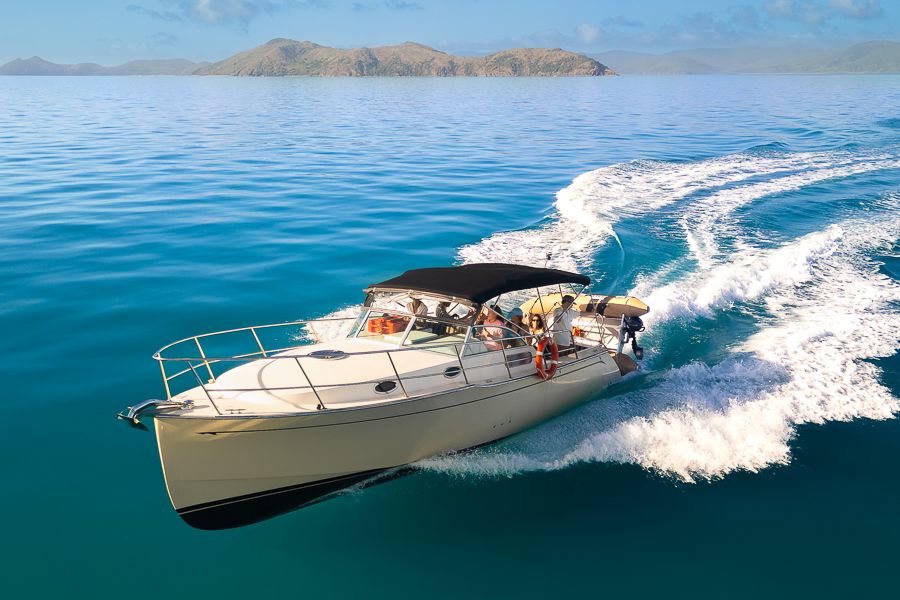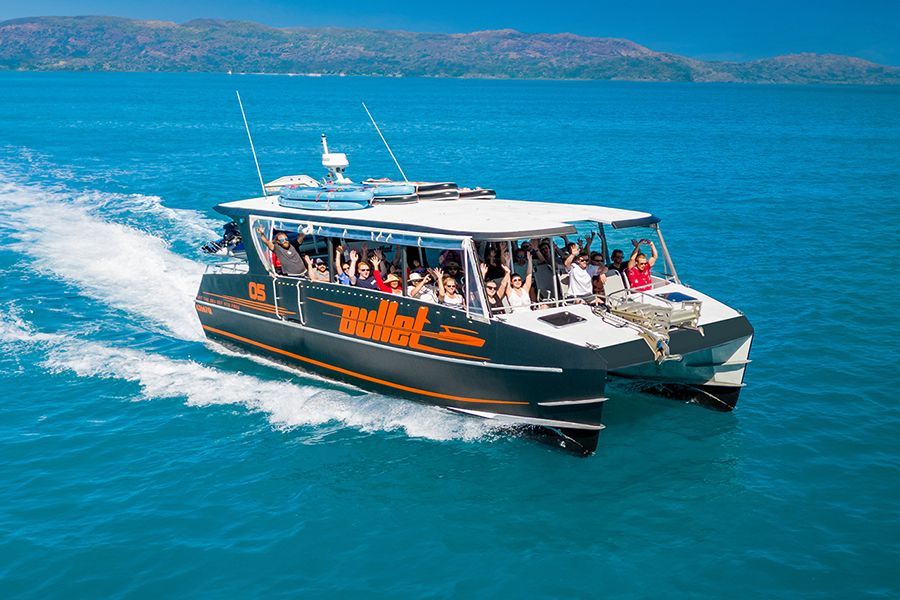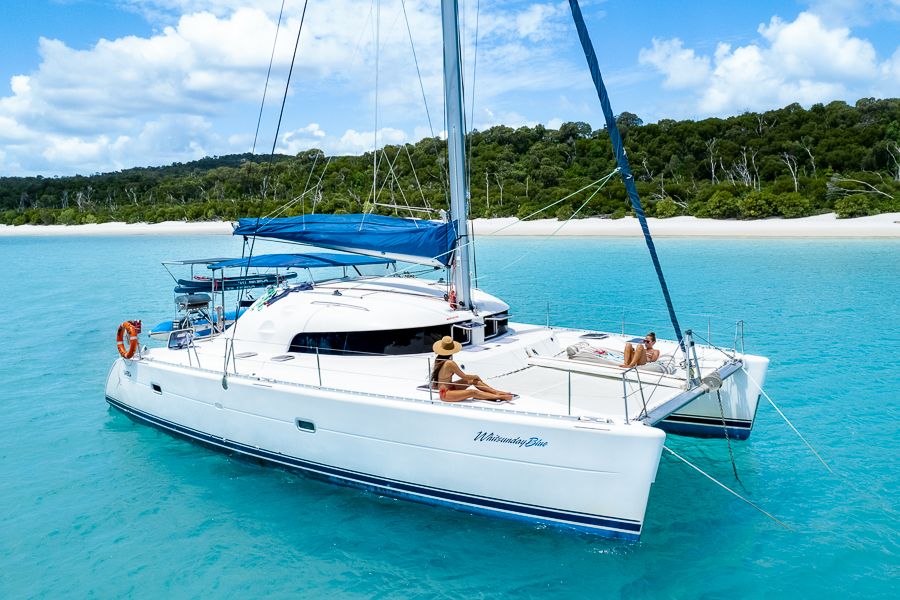Winter Weather In The Whitsundays
Winter in the Whitsundays falls from June to August and maintains a relatively warm, blissful temperature throughout! You can expect average high temperatures of 24°C to 25°C. Those planning to visit this beautiful corner of Queensland are in for a treat, with all of the tropical sunshine and none of the humidity!
It's a little known fact that the Whitsunday Islands are at their best during the winter period, thanks to optimal temperatures, as well as the end of the wet season, and the beginning of whale season!

Winter weather in the Whitsundays
Many Australians visit the Whitsundays during the winter months to escape colder temperatures in the regions of Southern Australia. The days provide ideal weather for exploring world-renowned tropical destinations, whilst the colder nights provide ideal ideal sleeping conditions, free from heat or humidity!
You may need to pack a light sweater, jumper, or jacket out on the water, but you'll rarely need more than that to keep warm. Our local team highly recommends that you still wear sunscreen, a hat, and sunglasses during the winter months to protect yourself from the strong Queensland UV rays.
The average ocean temperature during winter remains comfortable at a warm 21°C, so don't forget your swimsuit to enjoy the serene swimming and snorkelling opportunities that winter in the Whitsundays delivers!
Winter also coincides with the dry season, which means the winter months bring little to no rain, and ideal south-east trade winds to sail around the Whitsunday Islands too! It's very unlikely that you will need an umbrella or raincoat during this season - the month of August only collects a tiny average of 42.4 mm of rain!

Whitsundays average temperature and rainfall during winter
| AVERAGE MAX AIR TEMPERATURE (°C) | AVERAGE MIN AIR TEMPERATURE (°C) | AVERAGE WATER TEMPERATURE (°C) | AVERAGE MONTHLY RAINFALL (MM) | |
| JANUARY | 30.4 | 24.9 | 28.0 | 247.9 |
| FEBRUARY | 30.1 | 24.9 | 28.8 | 330.8 |
| MARCH | 28.8 | 24.0 | 27.0 | 258.4 |
| APRIL | 27.1 | 22.6 | 26.0 | 193.4 |
| MAY | 24.8 | 20.8 | 24.0 | 123.1 |
| JUNE | 22.4 | 18.4 | 22.0 | 89.2 |
| JULY | 21.9 | 17.6 | 21.0 | 61.6 |
| AUGUST | 22.9 | 18.1 | 23.0 | 42.4 |
| SEPTEMBER | 25.4 | 19.8 | 26.0 | 25.5 |
| OCTOBER | 27.6 | 21.8 | 26.0 | 43.9 |
| NOVEMBER | 29.1 | 23.3 | 27.0 | 108.2 |
| DECEMBER | 30.0 | 24.4 | 28.0 | 186.8 |
Bucket List Whitsunday Tours & Experiences
Whale season in the Whitsundays
In addition to the dreamy, tropical winter weather and ideal sailing conditions, winter in the Whitsundays is also when whales migrate to the Whitsundays to birth their calves! Whales seek shelter and protection in the calm Whitsunday Islands, where over the course of the winter period they will birth their calves, teach them to breach, and nurse them before returning on their journey to the cold Antarctic waters.
Whilst out on the water during the winter months you are more than likely to see full-grown whales such as humpback or minke whales, and you may also see whale calves during their first few days or weeks of life! We recommend that you book your idyllic sailing tours of the Whitsunday Islands early, as the winter season is popular amongst travellers near and far!
For up-to-date radars and alerts for severe weather during your trip to the Whitsundays, check the Bureau of Meteorology’s radar. Or read our complete guide to weather in the Whitsundays!























